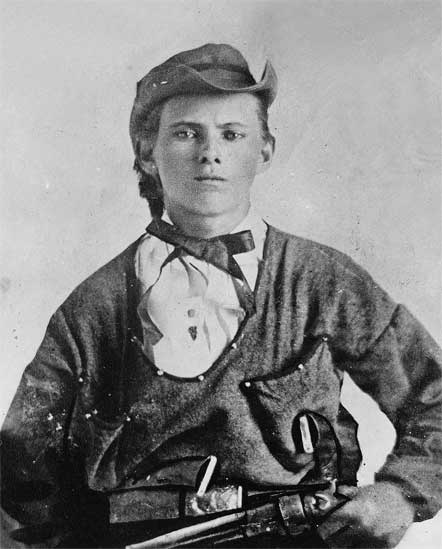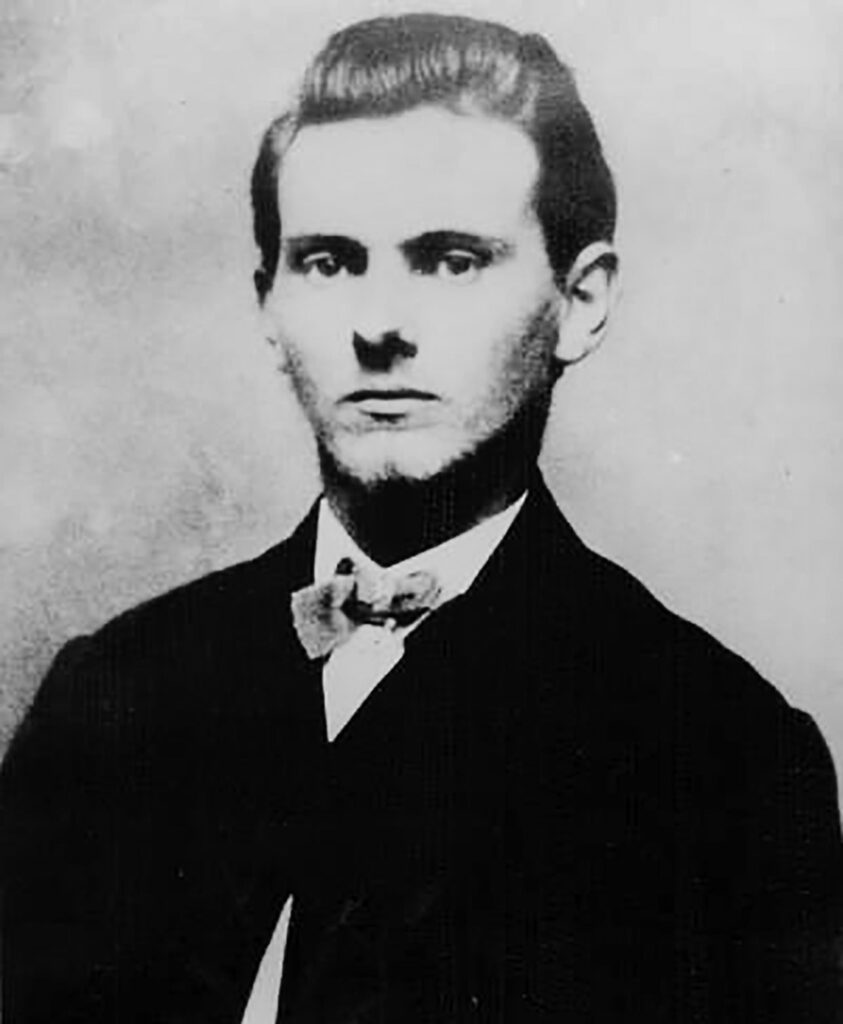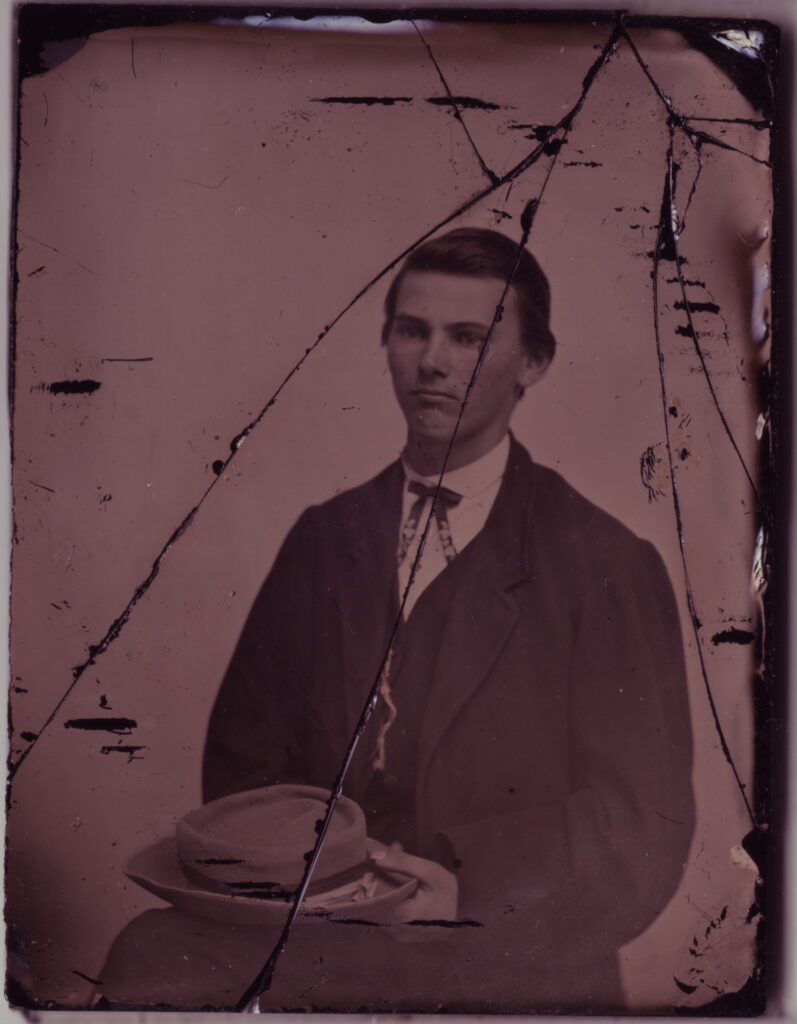The Legend Of Jesse James
Jesse James was an American outlaw, bank robber and Confederate guerrilla during the turbulent years following the Civil War. Born in Missouri, he became one of the most infamous figures of the Old West, seen by some as a folk hero and by others as a ruthless criminal. His life and legacy continue to captivate historians and storytellers alike.

The Farmer
Young Jesse James grew up on a Missouri farm, where he developed a strong will and fierce loyalty shaped by the hardships of frontier life.

The Fighter
That same grit drove him to join Confederate guerrilla bands during the Civil War, where he earned a reputation for boldness and deadly precision in battle.

The Outlaw
Hardened by war, Jesse emerged as a feared outlaw, leading a notorious gang that robbed banks, trains, and stagecoaches across the Midwest—becoming a lasting symbol of rebellion in post-war America.

